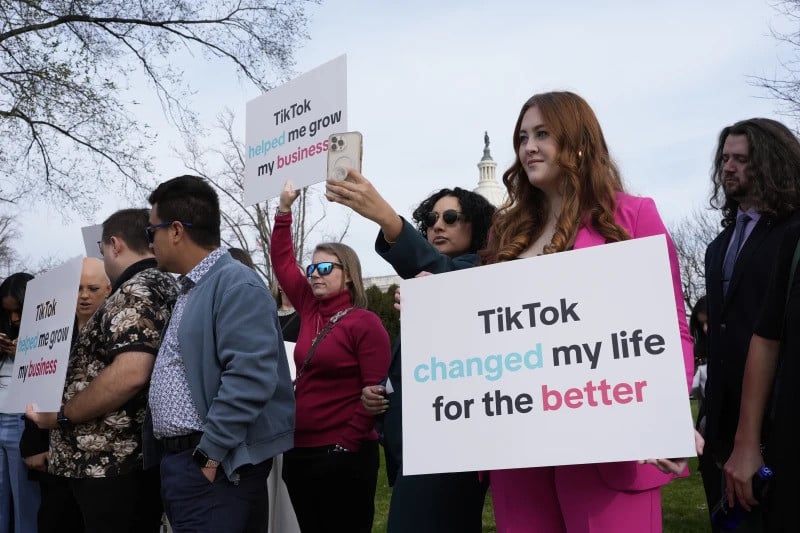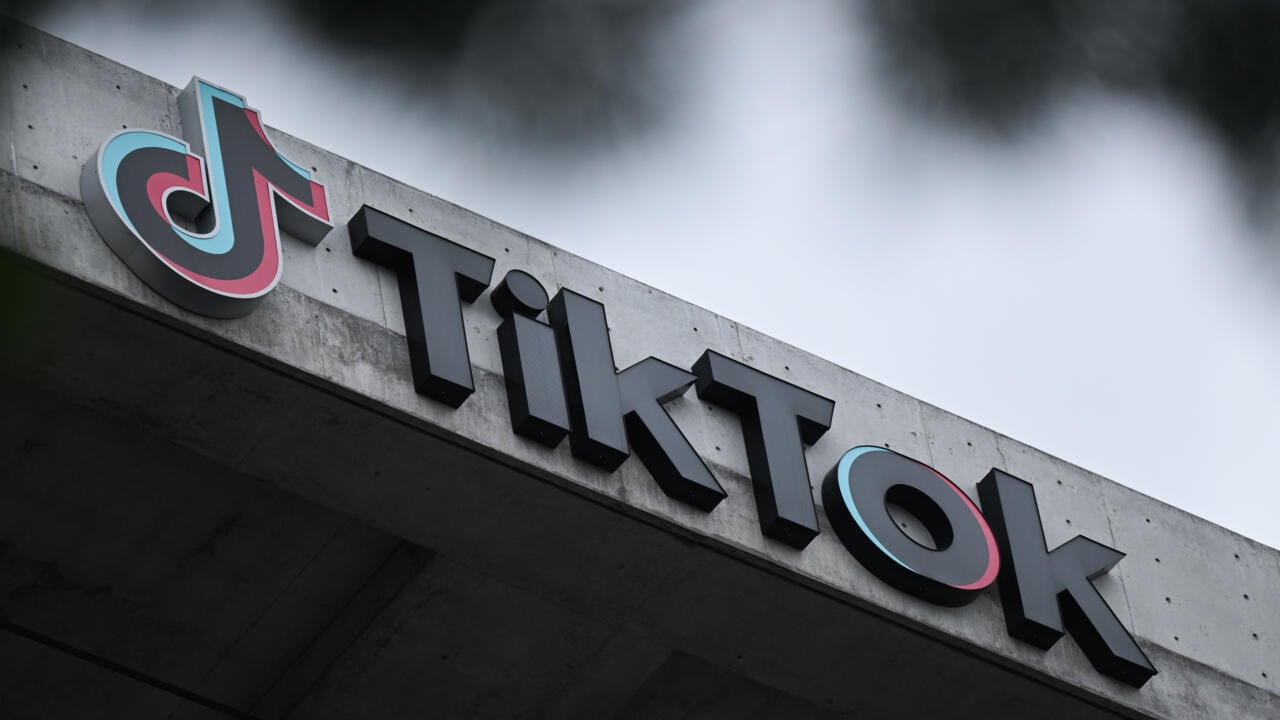AP
PUBLISHED
January 10, 2025
The clock is ticking for TikTok, one of the most popular social media platforms in the United States. On Friday, January 10, representatives of TikTok’s parent company, ByteDance, will appeal to the U.S. Supreme Court to delay or overturn a looming ban set to take effect later this month.
The decision stems from concerns about national security, as lawmakers have raised alarms over the app’s ties to its Chinese ownership.
A Strict Deadline: January 19
President Joe Biden signed legislation on April 24 requiring ByteDance to divest from TikTok by January 19, 2025. If the company fails to comply, the app will face an outright ban in the United States. Not only will TikTok be removed from app stores, but internet service providers will also be barred from granting access to the platform through U.S. internet browsers.
The timing of this ban adds a layer of uncertainty, as President-elect Donald Trump prepares to take office on January 20.
Trump’s Evolving Relationship with TikTok
In a December press conference at Mar-a-Lago, Trump acknowledged a “warm spot” for TikTok, attributing it to increased support from younger voters. “It’s a tough decision to make,” Trump admitted in a March CNBC interview. “Frankly, there are a lot of people on TikTok who love it.” This shift in tone has left many speculating about how his administration will approach the issue if the Supreme Court ruling is delayed or overturned.
It is worth noting that Trumpfiercely opposed the use of TikTok during his first term as President (2017-21) but has drastically changed his stance after the platform benefitted his second presidential campaign.
TikTok’s Legal Argument
ByteDance is urging the Supreme Court to reverse a decision by the U.S. Court of Appeals for the District of Columbia Circuit. The court upheld the legislation, stating the infringement of free speech rights is justified due to national security concerns. In its emergency motion, TikTok argues the law violates the First Amendment and could lead to “substantial losses” for the company. The app’s representatives are requesting either a postponement or a complete invalidation of the law before the January 19 deadline.
Broader Implications for Free Speech and Security
TikTok’s legal battle isn’t just about the platform itself—it raises critical questions about balancing national security with the protection of free expression. With over 170 million American users, the platform’s ban would mark the end of a cultural phenomenon and set a precedent for how governments regulate digital platforms.

TikTok users rallied at the Capitol on March 13, 2024, as the House passed a bill pushing for a nationwide ban unless its Chinese owner sells. AP
As the Supreme Court reviews the arguments on January 10, the case will test the limits of governmental authority in restricting digital communication in a globally connected era.
Will Trump Intervene?
Trump’s future role in TikTok’s fate remains unclear. While his first term included efforts to push ByteDance out of the U.S., his recent comments suggest he might approach the app differently this time around. “TikTok had an impact, and so we’re taking a look at it,” Trump remarked. “I have a little bit of a warm spot in my heart. I’ll be honest.”
The Final Countdown

Patrick T. Fallon / AFP
With the ban potentially taking effect on January 19, the next few weeks will be crucial for TikTok, its millions of users, and the broader tech landscape. Whether the Supreme Court sides with ByteDance or the U.S. government will have lasting implications far beyond the platform itself.
Tick-tock on the clock!
Is it Really the End of TikTok in the US? App’s Fate Hangs in the Balance as Jan. 19 Ban Looms
Table of Contents
AP
PUBLISHED
January 10, 2025
The clock is ticking for TikTok, one of the most popular social media platforms in the United States. On Friday, January 10, representatives of TikTok’s parent company, ByteDance, will appeal to the U.S. Supreme Court to delay or overturn a looming ban set to take effect later this month.
The decision stems from concerns about national security, as lawmakers have raised alarms over the app’s ties to its Chinese ownership.
A Strict Deadline: January 19
President Joe Biden signed legislation on April 24 requiring ByteDance to divest from TikTok by January 19, 2025. If the company fails to comply, the app will face an outright ban in the United States. Not only will TikTok be removed from app stores, but internet service providers will also be barred from granting access to the platform through U.S. internet browsers.
The timing of this ban adds a layer of uncertainty, as President-elect Donald Trump prepares to take office on January 20.
Trump’s Evolving Relationship with TikTok
In a December press conference at Mar-a-Lago, Trump acknowledged a “warm spot” for TikTok, attributing it to increased support from younger voters. “It’s a tough decision to make,” Trump admitted in a March CNBC interview. “Frankly, there are a lot of people on TikTok who love it.” This shift in tone has left many speculating about how his administration will approach the issue if the Supreme Court ruling is delayed or overturned.
It is worth noting that Trumpfiercely opposed the use of TikTok during his first term as President (2017-21) but has drastically changed his stance after the platform benefitted his second presidential campaign.
TikTok’s Legal Argument
ByteDance is urging the Supreme Court to reverse a decision by the U.S. Court of Appeals for the District of Columbia Circuit. The court upheld the legislation, stating the infringement of free speech rights is justified due to national security concerns. In its emergency motion, TikTok argues the law violates the First Amendment and could lead to “substantial losses” for the company. The app’s representatives are requesting either a postponement or a complete invalidation of the law before the January 19 deadline.
Broader Implications for Free Speech and Security
TikTok’s legal battle isn’t just about the platform itself—it raises critical questions about balancing national security with the protection of free expression. With over 170 million American users, the platform’s ban would mark the end of a cultural phenomenon and set a precedent for how governments regulate digital platforms.
TikTok users rallied at the Capitol on March 13, 2024, as the House passed a bill pushing for a nationwide ban unless its Chinese owner sells. AP
As the Supreme Court reviews the arguments on January 10, the case will test the limits of governmental authority in restricting digital communication in a globally connected era.
Will Trump Intervene?
Trump’s future role in TikTok’s fate remains unclear. While his first term included efforts to push ByteDance out of the U.S., his recent comments suggest he might approach the app differently this time around. “TikTok had an impact, and so we’re taking a look at it,” Trump remarked. “I have a little bit of a warm spot in my heart. I’ll be honest.”
The Final Countdown
Patrick T. Fallon / AFP
With the ban potentially taking effect on January 19, the next few weeks will be crucial for TikTok, its millions of users, and the broader tech landscape. Whether the Supreme Court sides with ByteDance or the U.S. government will have lasting implications far beyond the platform itself.
Tick-tock on the clock!
Source Link
Desk Report
AP PUBLISHED January 10, 2025 The clock is ticking for TikTok, one of the most popular social media platforms in the United States. On Friday,